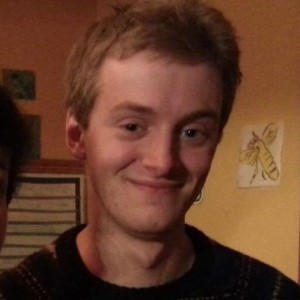Year: Senior
Major: Political Science
CFS Concentration: Field Studies in Social Justice
As part of the Field Studies in Social Justice course, I am currently interning at UNITE Here! Local 1- the Chicago chapter of a national labor union. UNITE is one of the largest labor unions in Chicago, representing a variety of hospitality workers in the hotel, food services, and airport industries. I originally chose to intern at UNITE because of my interest in progressive political activism, and I hoped to be able to learn more about how organizing actually works behind the scenes.
UNITE is rather unique among modern labor unions because of its aggressive orientation towards growth; in the last few years, the union has put all of its efforts into supporting workers as they try to form unions in workplaces where they do not yet exist. I have been working in UNITE’s Research Department, whose role in these campaigns involves conducting a variety of back-end research to complement on-the-ground organizing.
My experience has not only consisted of research work, however; my supervisor has gone out of his way to make sure I have opportunities to shadow many different people in the union to see all the different tasks that are involved in organizing labor and operating a union. Among other things, I have visited UNITE union shops around Chicago to meet with workers, accompanied a UNITE organizer on some house visits, and even sat in on a mediation meeting for a dispute between workers and management at a hotel.
Although my experience at UNITE has not been uniformly positive, I have without a doubt learned an enormous amount about the way political organizing works in the real world (Although UNITE’s primary “adversaries” are generally private companies, I nonetheless consider their work inherently political). It has been particularly interesting to work at a labor union that is generally “playing offense” in an era when union ranks overall are thinning and labor tends to be on the defensive. Part of this learning has happened simply through conversations with a variety of employees at UNITE, almost all of whom come from an organizing background (even if their primary role at the union now is not necessarily organizing).
Additionally, the CFS course that I have taken alongside my internship—titled “Race, Gender, and Violence” and taught by Chicago activist Mariame Kaba—has been an integral part of my experience in CFS. The course has prompted me to think critically about UNITE’s role in Chicago’s political ecosystem, and to consider the wide variety of opportunities to involve myself in social justice work in the Chicagoland area.
As I prepare to graduate in just over a quarter, I feel that my experience at UNITE—and in the CFS program as a whole—has provided me with ample fodder to think about how I can most effectively incorporate my understanding of social justice and my vision for a just society into the work I pursue after college, and has prepared me to make much more informed decisions about where to direct my personal and professional energies in the coming years.
